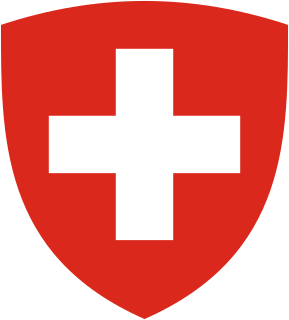
The politics of Armenia take place in the framework of the parliamentary representative democratic republic of Armenia, whereby the President of Armenia is the head of state and the Prime Minister of Armenia the head of government, and of a multi-party system. Executive power is exercised by the President and the Government. Legislative power is vested in both the Government and Parliament.

The current Constitution of Chile was approved by Chilean voters in a controversial plebiscite on September 11, 1980, under the military dictatorship of Augusto Pinochet. It was partially enacted on March 11, 1981 and has been fully effective since March 11, 1990. It was amended considerably on August 17, 1989 and on 22 September 2005 (legislatively), and also in 1991, 1994, 1997, 1999, 2000, 2001, 2003, 2007, 2008, 2009, and 2010. It is Chile's eighth constitution, replacing the constitution of 1925. The Chilean people in the 2020 national plebiscite overwhelmingly voted to draft a new constitution. On October 25, 2020, a referendum was held which saw Chilean voters overwhelming approve 78% in favor of writing a new constitution by a convention. This draft constitution is to be approved or rejected by another popular vote referendum in 2022. A Constitutional Convention to write the new constitution was elected in May 2021.

Switzerland is a semi-direct democratic federal republic. The federal legislative power is vested in the two chambers of the Federal Assembly, the National Council and the Council of States. The Federal Council holds the executive power and is composed of seven power-sharing Federal Councillors elected by the Federal Assembly. The judicial branch is headed by the Federal Supreme Court of Switzerland, whose judges are elected by the Federal Assembly.
A referendum is a direct vote by the electorate on a particular proposal or issue. This is in contrast to an issue being voted on by a representative. It can have nationwide or local forms. This may result in the adoption of a new policy or specific law. In some countries, it is synonymous with or commonly known by other names including a plebiscite, votation,ballot question, ballot measure, or proposition.

Direct democracy or pure democracy is a form of democracy in which people decide on policy initiatives directly. This differs from the majority of currently established democracies, which are representative democracies. The theory and practice of direct democracy and participation as its common characteristic was the core of work of many theorists, philosophers, politicians, and social critics, among whom the most important are Jean Jacques Rousseau, John Stuart Mill, and G.D.H. Cole.
A recall election is a procedure by which, in certain polities, voters can remove an elected official from office through a referendum before that official's term of office has ended. Recalls, which are initiated when sufficient voters sign a petition, have a history dating back to the constitution in ancient Athenian democracy and feature in several current constitutions. In indirect or representative democracy, people's representatives are elected and these representatives serve for a specific period of time. However, where the facility to recall exists, if any representative comes to be perceived as not properly discharging their responsibilities, they can be called back with the written request of a specific number or proportion of voters. Even where they are legally available, recall elections are only commonly held in a small number of countries including the United States, Peru, Ecuador, and Japan. They are considered by groups such as ACE Electoral Knowledge Network the most rarely used form of direct democracy.

In political science, an initiative is a means by which a petition signed by a certain number of registered voters can force a government to choose either to enact a law or hold a public vote in the legislature in what is called indirect initiative, or under direct initiative, where the proposition is put to a plebiscite or referendum, in what is called a Popular initiated Referendum or citizen-initiated referendum.
Semi-direct democracy is a type of democracy that combines the mechanisms of direct democracy and representative government. In semi-direct democracy, representatives administer daily governance, but citizens keep the sovereignty, being able to control their governments and laws through different forms of popular action: binding referendum, popular initiative, revocation of mandate, and public consultations. The first two forms—referendums and initiatives—are examples of direct legislation.
In the politics of the United States, the process of initiatives and referendums allow citizens of many U.S. states to place new legislation, or to place legislation that has recently been passed by a legislature on a ballot for a popular vote. Initiatives and referendums, along with recall elections and popular primary elections, are signature reforms of the Progressive Era; they are written into several state constitutions, particularly in the West. It is a form of direct democracy.

Directly elected mayors in England and Wales are local government executive leaders who have been directly elected by the people who live in a local authority area. The first such political post was the mayor of London, created as the executive of the Greater London Authority in 2000 as part of a reform of the local government of Greater London. Since the Local Government Act 2000, all of the several hundred principal local councils in England and Wales are required to review their executive arrangements.
Voting in Switzerland is the process by which Swiss citizens make decisions about governance and elect officials. The history of voting rights in Switzerland mirrors the complexity of the nation itself. The polling stations are opened on Saturdays and Sunday mornings but most people vote by post in advance. At noon on Sunday, voting ends and the results are usually known during the afternoon.

Referendums are held only occasionally by the Government of New Zealand. Referendums may be government-initiated or held in accordance with the Electoral Act 1993 or the Citizens Initiated Referenda Act 1993. Nineteen referendums have been held so far. Fourteen were government-led, and five were indicative citizen initiatives.

A popular referendum is a type of a referendum that provides a means by which a petition signed by a certain minimum number of registered voters can force a public vote (plebiscite) on an existing statute, constitutional amendment, charter amendment or ordinance, or, in its minimal form, to simply oblige the executive or legislative bodies to consider the subject by submitting it to the order of the day. It is a form of direct democracy.

A constitutional referendum was held in Somaliland on 31 May 2001. The referendum was held on a draft constitution that affirmed Somaliland's independence from Somalia. 99.9% of eligible voters took part in the referendum and 97.1% of them voted in favour of the constitution.

Bolivia has had seventeen constitutions, including the present one, since its foundation in 1825.
Types of democracy refers to pluralism of governing structures such as governments and other constructs like workplaces, families, community associations, and so forth. Types of democracy can cluster around values. For example, some like direct democracy, electronic democracy, participatory democracy, real democracy, deliberative democracy, and pure democracy strive to allow people to participate equally and directly in protest, discussion, decision-making, or other acts of politics. Different types of democracy - like representative democracy - strive for indirect participation as this procedural approach to collective self-governance is still widely considered the only means for the more or less stable democratic functioning of mass societies. Types of democracy can be found across time, space, and language. In the English language the noun "democracy" has been modified by 2,234 adjectives. These adjectival pairings, like atomic democracy or Zulu democracy, act as signal words that point not only to specific meanings of democracy but to groups, or families, of meaning as well.
Three main alternatives are generally presented to Puerto Rican voters during a Puerto Rico political status plebiscite: full independence, maintenance or enhancement of the current commonwealth status, and full statehood into the American Union. The exact expectations for each of these status formulas are a matter of debate by a given position's adherents and detractors. Puerto Ricans have proposed positions that modify the three alternatives above, such as (a) indemnified independence with phased-out US subsidy, (b) expanded political but not fiscal autonomy, and (c) statehood with a gradual phasing out of federal tax exemption.
The optional referendum is a referendum which comes from a formal demand. The most well known types of optional referendums is the popular initiative to request a law, and the popular referendum to repeal a law. The collection of signatures from the public is normally necessary to organize an optional referendum, but some jurisdictions allow government agencies to request for a referendum also. It is a form of direct democracy.
A referendum is a direct vote in which an entire electorate is asked to either accept or reject a particular proposal. This article summarises referendum laws and practice in various countries.
A referendum on the political status of Puerto Rico was held in Puerto Rico on June 11, 2017. The referendum had three options: becoming a state of the United States, independence/free association, or maintaining the current territorial status. Those who voted overwhelmingly chose statehood by 97%. This figure is attributed to a boycott led by the pro-status quo PPD party, which resulted in a 22.93% turnout.










